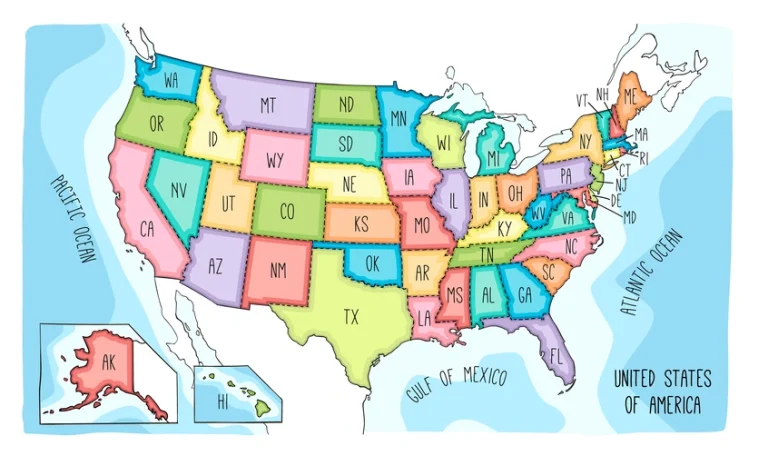85% of Aralia Students Place in Top Writing Competitions
How Colleges Are Using AI in Admissions
AI is increasingly being used as a tool to streamline various aspects of the college admissions process, particularly by schools that receive tens of thousands of applications each year. According to a 2023 survey by Intelligent, 50% of higher education admissions offices are already using AI, which is expected to rise to over 80% in 2024.
Some of the most common applications of AI in admissions include:
- Screening applications: AI helps admissions officers sort through large numbers of applications by filtering out students who do not meet the basic criteria, such as minimum GPA and test scores.
- Analyzing transcripts and recommendation letters: AI programs can scan and evaluate transcripts and recommendation letters to assess academic performance and identify patterns in coursework rigor.
- Reviewing personal essays: Some schools are testing AI tools that analyze essay content for originality, writing style, and potential indicators of a strong candidate.
- Automating communication: AI-powered chatbots and automated emails enable universities to efficiently respond to frequently asked questions and engage with prospective students.
Can AI Replace Human Admissions Officers?
A major concern among students and families is whether AI will replace human decision-making in the college admissions process. While AI plays a role in organizing and analyzing application data, school administrators still make final decisions, especially at highly selective institutions. Many top universities emphasize that AI is a tool for efficiency, not a replacement for the nuanced judgment of admissions officers.
However, at schools where admissions decisions are largely formula-based, such as those relying on GPA and standardized test scores, AI is already being used to make initial admissions determinations. As a result, students must be intentional about presenting a well-rounded application that highlights scores in addition to qualitative factors such as leadership, extracurricular activities, and personal character.
The growing capabilities of AI in education have raised broader concerns about its use. Recent research from Christian Terwiesch, a professor at the University of Pennsylvania’s Wharton School, found that ChatGPT-3 was able to pass a final exam for the school’s Master of Business Administration (MBA) program, scoring between a B- and B. Terwiesch noted that AI’s ability to automate high-level knowledge work, including tasks performed by analysts and consultants, has significant implications for education. If AI can already demonstrate strong analytical and problem-solving skills, how will universities adjust their criteria for evaluating human applicants?
This ongoing evolution underscores the importance of students highlighting qualities that AI cannot easily measure, such as creativity, leadership, and the ability to convey their unique stories effectively.
Want to Improve Your GPA in Middle School or High School?
More prominent universities, especially research-focused institutions like MIT and Carnegie Mellon, are heavily investigating the uses of AI. They have the resources to integrate AI into their admissions processes, coursework, and research initiatives. These schools are also more likely to utilize AI-driven application screening tools to manage high volumes of applicants, focusing on data analysis and predictive modeling.
Smaller colleges, on the other hand, may not have the same funding or infrastructure for AI development. Instead of replacing human review, AI in these institutions is more likely to serve as a supplemental tool, helping admissions officers identify promising candidates while preserving a more personalized evaluation process.
Additionally, while large universities like the University of Florida and Arizona State University are incorporating AI literacy into various programs and forming partnerships with companies such as Nvidia and OpenAI, smaller schools must carefully weigh the financial risks of such investments. For some, integrating AI education into existing programs instead of launching dedicated AI degrees may be the most viable approach.
How AI Affects College Applicants
The traditional college admissions process relies heavily on human judgment, with admissions officers reviewing applications, essays, and recommendation letters. This method allows for nuanced evaluations but can also introduce bias, subjectivity, and inconsistencies. It is also time-consuming, leading to delays and inefficiencies.
An AI-oriented admissions process, on the other hand, integrates machine learning to analyze applications systematically and efficiently. AI can scan thousands of applications in seconds, assessing grades, test scores, extracurriculars, and essays for patterns that match an institution’s preferred student profile. Some AI systems even evaluate soft skills, such as leadership and creativity, through natural language processing and behavioral analysis.
The rise of AI in admissions has its pros and cons. On one hand, AI can make the process more objective by reducing human bias. On the other hand, it means students need to be more strategic about how they present themselves. Here’s what students can do to adapt and stay prepared as this technology advances:
- Build a strong personal brand: AI tools scan for keywords and patterns, so students should ensure that their essays, extracurricular activities, and recommendations tell a clear and compelling story.
- Aim for authenticity: While AI processes massive amounts of data, admissions officers still value genuine, thoughtful storytelling. Essays and interviews remain key ways to stand out. However, concerns about AI-generated content are growing. Darren Hick, a philosophy professor at Furman University, warned that AI-written essays can be difficult to detect with traditional plagiarism software. In a Facebook post, he described how a student’s paper, generated by ChatGPT, appeared well-structured but was filled with confidently written misinformation. As AI-generated content becomes more sophisticated, admissions offices may develop stricter policies or require additional verification for work.
- Understand AI’s role: Since AI may be screening applications based on specific criteria, students should ensure they meet those benchmarks while also emphasizing what makes them unique.
As the admissions process continues to evolve, students must stay informed and proactive. Strong academic performance, well-crafted essays, and strategic preparation are more important than ever. At Aralia, we help students build the skills they need to excel in an AI-driven admissions landscape. Our expert instructors provide personalized academic support, essay-writing guidance, and test preparation to guarantee students develop the knowledge and confidence required to succeed.
Get in touch with Aralia today and take the next step toward achieving your academic goals.
Learn about AI with Aralia
Responsible Use of AI in Academic and English Writing equips students with the skills to use AI responsibly and ethically in their academic work. Through this class, students will develop critical thinking and writing skills that transcend AI-generated content.

Responsible Use of AI in Academic and English Writing
This Responsible Use of AI in Academic and English Writing course is designed to teach students how to integrate artificial intelligence (AI) tools into their academic and English writing processes responsibly, effectively, and ethically.










